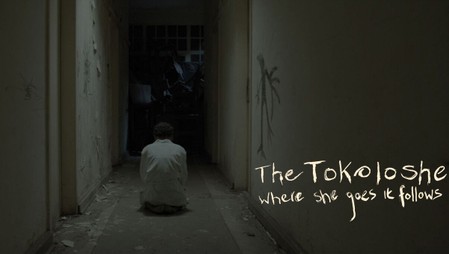Durban Fest Fetes South African Women With Diverse Line-Up
By Christopher Vourlias
LOS ANGELES (Variety.com) – DURBAN — The Durban Int’l. Film Festival opened Thursday night with a celebration of South African womanhood and a commitment to diversity in film, even as it mourned the passing of a festival icon and commemorated the 100th anniversary of the birth of Nelson Mandela.
The 39th edition opened with Jerome Pikwane’s “The Tokoloshe,” a psychological thriller about a destitute hospital cleaner who’s forced to confront the demons of her past to try to save a child’s life.
In prepared remarks, delivered by a colleague at Thursday’s opening ceremony because she wasn’t able to attend, DIFF manager Chipo Zhou described the movie as a parable of womanhood in a country plagued by sexual violence.
“It is a horror film…unveiling the menace that is our everyday burden as women in this country,” she said, adding more hopefully that the movie “sets the scene for a festival that continues to celebrate the role women play within the industry — as filmmakers, storytellers, talents and business people.”
The festival closes July 29 with “Rafiki,” by Kenya’s Wanuri Kahiu, a moving LGBT love story that world premiered in Cannes’ Un Certain Regard this year. Zhou remarked how the fest’s opening and closing films were part of a concerted effort to push diversity to the foreground, with a particular emphasis on movies by and about women, noting, “We wanted to bookend DIFF with films that tell stories about women, their strength and their resilience.”
That mission statement shines through in this year’s official competition, where South African women have a strong presence. Also having its world premiere is Lwazi Mvusi’s “Farewell Ella Bella,” about a young woman on a journey to bury her father. Following its Toronto premiere last year, Jenna Bass’ “High Fantasy” examines thorny issues of South African identity in a satirical thriller about a group of young travelers who mysteriously swap bodies on a camping trip. Veteran helmer Sara Blecher, meanwhile, upends genre conventions with her Johannesburg-set gangster film, “Mayfair.”
Also in competition from South Africa is Ferdinand van Zyl’s “The Recce,” which explores the pain and suffering of families during and after the country’s 20-year border war. Rounding out the competition titles are “Supa Modo,” by Kenya’s Likarion Wainaina; “Clint,” by India’s Harikumar Ramakrishna Pilla; “Ben Niao” (The Foolish Bird), by China’s Ji Huang and Otsuka Ryuji; “O Filme Da Minha Vida” (The Movie Of My Life), by Brazil’s Selton Mello; “Pororoca,” by Romania’s Constantin Popescu; “The Reports on Sarah and Saleem,” by Palestinian helmer Muayad Muayad; “The Tale,” by Jennifer Fox; and “Un Viaje A La Luna” (A Trip To The Moon), by Argentina’s Joaquín Cambre.
On the eve of its 40th-anniversary celebration, South Africa’s longest-running film festival will screen more than 180 feature films, documentaries and shorts in this sunny seaside city, alongside the Isiphethu industry program for emerging and micro-budget filmmakers; the 11th edition of Talents Durban, in partnership with Berlinale Talents; and the 9th annual Durban FilmMart, the co-production and finance forum.
For a fest that built its reputation nearly four decades ago as a bulwark against apartheid-era censorship, the opening ceremony paid tribute to the late Moosa Moosa, a Durban industry titan and DIFF co-founder who passed away this year. As if in his honor, this year’s edition will likewise be on the front lines of the hot-button issue of the day, adding its voice to the ongoing debate about sexual harassment and gender inequality in the film biz.
South African industry body Sisters Working in Film and Television (SWIFT) will have a strong presence in Durban, months after launching a campaign to tackle sexual harassment in the workplace that includes an industry-wide code of conduct that’s garnered the support of government institutions, trade groups, and broadcasters. The group has also created a series of PSAs around the hashtag #ThatsNotOk, featuring instances of unacceptable workplace behavior, that will screen before every movie in Durban. SWIFT will also be leading two panels during the Durban FilmMart.
It’s a timely moment to push the conversation forward. Just days before the opening ceremony, the National Film and Video Foundation (NFVF) announced that Born Free Media, the producers of Khalo Matabane’s “The Number,” had chosen not to accept funds awarded by the NFVF for marketing and distribution of the film, in light of a string of allegations of rape and sexual misconduct against the director.
The statement noted that Born Free Media was “founded on the values of diversity and respect and have always shown commitment to empowering and supporting women in the film and television industry.” The NFVF said that it “will not support acts that go directly against…the values that the NFVF is built on.” Matabane has denied all charges.
Zhou’s statement Thursday night set a strident tone for the festival. “We’re in a time of diversity, where women, racial minorities, and the LGBTI+ communities who have traditionally been underrepresented in film are having their voices brought forward,” she said. “Referencing this global narrative, the films in this year’s festival reflect these new voices as much as possible.”
Of “The Tokoloshe,” she added, “It depicts the story of a survivor, not a victim.”
The Durban Int’l. Film Festival runs July 19-29.

